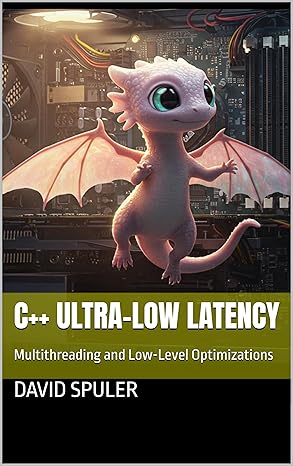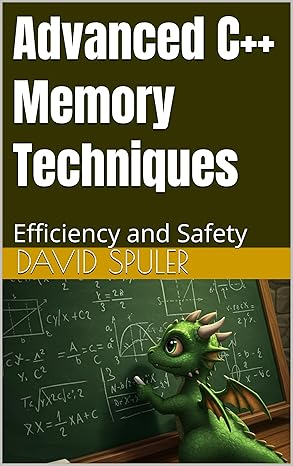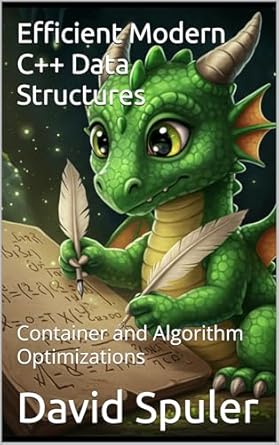Aussie AI Blog
DIY Preventive C++ Memory Safety
-
November 2nd, 2024
-
by David Spuler, Ph.D.
Prevention Versus Detection
This article examines the question as to what DIY memory safety techniques can be used to prevent an error from occurring, or to prevent a security exploit being used. There are many other techniques to "detect" a memory error, which are valuable, but do not directly prevent a memory glitch in production. These improve quality indirectly by finding bugs, which can then be fixed.
The list of memory errors to consider for prevention includes:
- Uninitialized memory usage (heap and stack)
- Null pointer dereference
- Buffer overflows (reads and writes)
- Buffer underflows (reads and writes)
- Use-after-free
- Double-deallocation
- Mismatched allocation and deallocation
- Standard library container memory issues
- Standard library function problems
Some of the standard library issues include:
- Unsafe string functions — e.g.,
strcpy,strcat,sprintf. - Detecting when the "safe" string functions truncate the text (e.g.,
snprintf,strcpy_s). strncpyis a special problematic case that is easily fixed by a wrapper.- File pointer problems and file operation sequence errors (e.g., null file pointers, double-
fclose). - Removing an object from a container in the middle of an iterator.
The DIY memory techniques that we can consider include:
- Memory sanitizer tools
- Macro intercepts (e.g.,
mallocandfree) - Linker intercepts (e.g.,
newanddelete) - Initialization methods
- Canary values
- Redzone memory regions
- Memory poisoning
- Delayed-deallocation
- Safe wrapper functions
- Smart wrapper classes
Memory Sanitizer Tools
The most obvious method of prevention of memory problems is to use runtime memory checkers and sanitizers. Examples include:
- Valgrind (Linux)
- AddressSanitizer (GCC)
- compute-sanitizer (CUDA C++)
These tools will detect and prevent a vast range of memory errors in the stack and heap. Examples include uninitialized memory usage, array bounds overflows, and use-after-free errors.
But these tools are simply too slow to use in production. They are valuable in terms of indirectly improving memory safety because glitches are detected early and fixed by programmers. But they really don't solve the prevention problem.
Preventing Null Pointer Dereferences
A huge number of null pointer dereferences can be prevented and detected by wrapping the many standard library functions. Here's a simple example of the intercept:
#define strcmp strcmp_safe
And here's the wrapper function with parameter validation checks that prevent null pointer crashes:
int strcmp_safe(const char* s1, const char* s2)
{
if (!s1 && s2) {
AUSSIE_ASSERT(s1);
return -1;
}
else if (s1 && !s2) {
AUSSIE_ASSERT(s2);
return 1;
}
else if (!s1 && !s2) {
AUSSIE_ASSERT(s1);
AUSSIE_ASSERT(s2);
return 0; // Equal-ish
}
else {
// Both non-null
return strcmp(s1, s2);
}
// NOTREACHED
}
Unfortunately, detecting null pointer usage requires compiler changes for direct pointer or array operations, such as:
*ptr = 0;
ptr->value = 0;
arr[0] = 0;
Preventing Memory Initialization Errors
One of the simplest DIY fixes is to avoid uninitialized memory errors in C++ by initializing memory ourselves. To do this, we need to use these techniques:
- Intercept
mallocwith macros (or linking) and replace with a wrapper that usescalloc(or usesmemsetto zero). - Intercept other heap allocation primitives (e.g.,
strdup,realloc). - Link-time intercept
newand change tocalloc(also requires matching linker intercepts ofdeleteto change tofree). - Intercept
allocadynamic stack memory function (and usememsetto zero memory). - Use smart buffer wrapper classes to initialize local buffer variables on the stack (i.e., function local variables).
A whole class of memory errors disappears!
Most of the above techniques require minimal code changes to existing code, such as to
add a header file for macro intercepts.
Note that C++ already zeroes all memory for global variables and local static variables,
without needing any special changes.
The most invasive of the above methods is adding safety class wrappers for stack buffers,
but there's not really any intercepts possible in C++ for stack memory.
Other possible solutions for stack buffers would involve changes to the code itself,
such as to use heap memory instead,
or changing to dynamic alloca stack memory (which can be macro-intercepted).
Overall, there's only a few exceptions to what memory we can initialize with DIY techniques, in that compiler changes are probably needed for:
- Full stack frame initialization to zero on function entry.
- Initialization of small local variables on the stack (without extra class wrapper variables).
- Register variable initialization (also related to local variables).
Mismatched Allocation and Deallocation
Mismatches between the various types of allocation and deallocation cause undefined behavior, and can even crash. In some cases, they won't crash, but will fail to run the correct constructors or destructors. The correct matches are:
malloc,calloc,strdup—freenew—deletenew[]—delete[]
Any crossover between any of the three categories is technically a failure.
However, these are easily resolved by DIY memory primitive wrappers.
By using linke-time intercepting of the four new and delete primitives,
everything can be converted to malloc/calloc and free.
In this way, there won't be any crashes anymore,
even if this error occurs.
Related Memory Safety Blog Articles
See also these articles:
- Canary Values & Redzones for Memory-Safe C++
- Use-After-Free Memory Errors in C++
- Array Bounds Violations and Memory Safe C++
- Poisoning Memory Blocks for Safer C++
- Uninitialized Memory Safety in C++
- DIY Memory Safety in C++
- CUDA C++ Floating Point Exceptions
- Memory Safe C++ Library Functions
- Smart Stack Buffers for Memory Safe C++
- Safe C++ Text Buffers with snprintf
Safe C++ Book

|
The new Safe C++ coding book by David Spuler:
Get your copy from Amazon: Safe C++: Fixing Memory Safety Issues |
Aussie AI Advanced C++ Coding Books

|
C++ AVX Optimization: CPU SIMD Vectorization:
Get your copy from Amazon: C++ AVX Optimization: CPU SIMD Vectorization |

|
C++ Ultra-Low Latency: Multithreading and Low-Level Optimizations:
Get your copy from Amazon: C++ Ultra-Low Latency |

|
Advanced C++ Memory Techniques: Efficiency & Safety:
Get your copy from Amazon: Advanced C++ Memory Techniques |

|
Safe C++: Fixing Memory Safety Issues:
Get it from Amazon: Safe C++: Fixing Memory Safety Issues |

|
Efficient C++ Multithreading: Modern Concurrency Optimization:
Get your copy from Amazon: Efficient C++ Multithreading |

|
Efficient Modern C++ Data Structures:
Get your copy from Amazon: Efficient C++ Data Structures |

|
Low Latency C++: Multithreading and Hotpath Optimizations: advanced coding book:
Get your copy from Amazon: Low Latency C++ |

|
CUDA C++ Optimization book:
Get your copy from Amazon: CUDA C++ Optimization |

|
CUDA C++ Debugging book:
Get your copy from Amazon: CUDA C++ Debugging |
More AI Research Topics
Read more about: